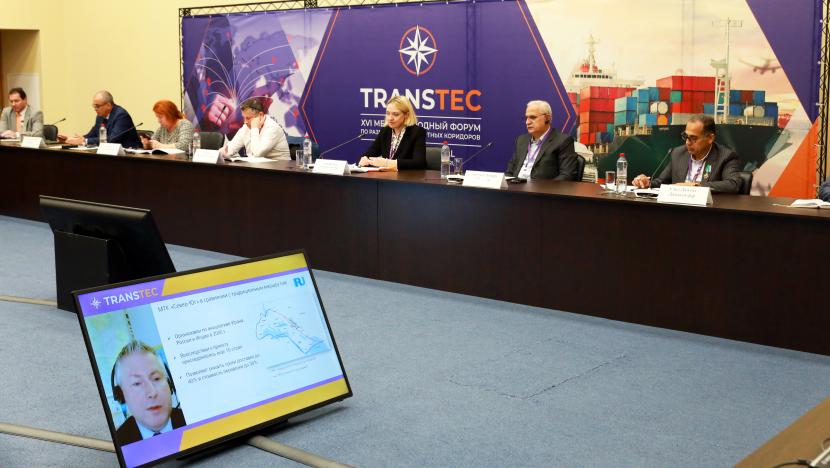Russia and its role as a unique global trade and transport hub was again at the centre of the annual international transport corridors forum, TRANSTEC, in St Petersburg.
At the recent 16th edition of the event, taking place in a hybrid virtual format, IRU joined public authorities, business figures and academia to present views on two key issues: customs and border facilitation, and north-south trade between Southern Asia and Russia.
IRU spoke about improving hard and soft infrastructure to improve transit times and customs processing at key border-crossing points. Reiterating the main outcomes of its recent analysis of good and bad practice on COVID related border restrictions, IRU also outlined misguided policies and pointless restrictions that lead to trucks being stuck at borders, with drivers facing additional health risks and transport operators facing heavy additional costs.
Tried and tested harmonised UN trade and transport facilitation instruments and their digital tools, including TIR, can reduce physical contact between drivers and border officials, reduce high costs for the industry, and mitigate congestion and delays.

